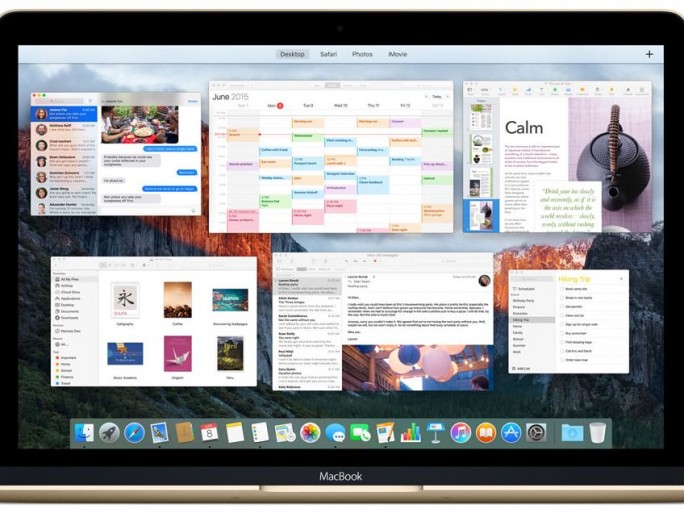Apple Mac OS X El Capitan Is Now Available As Free Update

Mac OS X El Capitan should make your Mac faster and more efficient, refining on Yosemite
Apple has made the latest version of its desktop operating system, Mac OS X El Capitan, available as a free update to compatible systems.
All Macs released in 2009 or later, and even some from 2008 and 2007, can run El Capitan, which is named after a mountain in Yosemite National Park.
The software has been in public beta since July and was announced in June at Apple’s Worldwide Developers Conference (WWDC).
Mac OS X El Capitan
 El Capitan hopes to build on the success of its predecessor, OS X Yosemite, and focuses on refining the performance and experience of that release rather than introducing any radical new features.
El Capitan hopes to build on the success of its predecessor, OS X Yosemite, and focuses on refining the performance and experience of that release rather than introducing any radical new features.
“People love using their Macs, and one of the biggest reasons is the power and ease-of-use of OS X,” said Craig Federighi, Apple’s senior vice president of Software Engineering. “El Capitan refines the Mac experience and improves performance in a lot of little ways that make a very big difference. Feedback from our OS X beta program has been incredibly positive and we think customers are going to love their Macs even more with El Capitan.”
Apple says El Captain should make basic functions and launching applications quicker and easier, reduce power consumption and make the CPU run more efficiently. El Capitan introduces ‘San Francisco’, a new font designed for Retina display machines, streamlined built-in apps and more intelligent Spotlight search. For example, users can ask real language questions to search for files, photos or the web, such as ‘documents I worked on last June’.
No unification with iOS
Users can now ‘snap’ windows similar to Microsoft Windows and even create multiple desktops with different snap configurations, while there are easy options to mute Safari, pin tabs in the browser and find the cursor when you first log on.
iOS 9 was also released a s a free update earlier this month, but Tim Cook said earlier this week at BoxWorks 2015 in San Francisco there was no chance of the company unifying the two platforms any time soon.
“We don’t believe in having one OS for PC and mobile,” he said, adding Apple preferred instead to link iOS and Mac OS with features like handoff and cloud collaboration. “We think it subtracts from both. We’re very much focused on two. We’ve recognised we’re moving from device to device all day long. You want them all to work seamless together”
How well do you know Apple? Take our quiz!